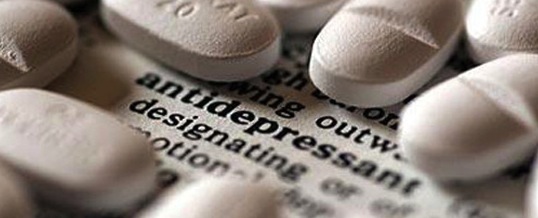
Screening for and treating depression could help to reduce the risk of heart disease in patients with moderate to severe depression, according to new research from the Intermountain Medical Center Heart Institute in Salt Lake City, UT.
In a 3-year study of 5,000 patients with moderate or severe depression, researchers found that those treated with antidepressants had lower rates of death, coronary artery disease and stroke than those who did not take the drugs.
Notably, the impact of antidepressant use on cardiovascular disease risk was even stronger than the effect of taking statin medications, the researchers said.
For the study, the researchers screened more than 26,000 patients treated by the center over 3 years, using an assessment tool that asked about factors such as mood, sleep and appetite to gauge depressive symptoms. Slightly more than 5,300 people — or 20 percent — had moderate to severe depressive symptoms, the researchers found. The results of their analysis will be presented at this month’s annual conference of the American College of Cardiology.
The study showed that patients with moderate to severe depression who were taking antidepressants alone had a 53 percent lower risk of dying, developing coronary artery disease or having a stroke during the three-year follow-up period as compared to patients with moderate to severe depression who were not taking antidepressants or statins.
“Antidepressants were not associated with a reduced cardiovascular risk in people with little or no depression, but in moderately to severely depressed people, antidepressants were shown to significantly improve cardiovascular outcomes,” said Dr. May.
The results also suggested there was a greater protective effect from treating the more severe depression with antidepressants than from the addition of statins, cholesterol-lowering drugs that tackle cardiovascular risk directly.
Although the study was not designed to analyze a correlation directly, the researchers note that moderately to severely depressed patients taking antidepressants alone appeared to fare better than those taking statins alone or in addition to antidepressants .
“We thought we’d see an additive effect,” said Dr. May. The researchers found, however, “that in the more depressed people, the antidepressant really was what made the biggest difference.”
Behavioral changes from treating depression
Dr. May believes treating depression results in behavioral changes that could explain the health benefits observed in this epidemiological study. “Antidepressants might have relevant physiological benefits, but I also think the behavioral changes that improve a person’s mood can also improve cardiovascular health,” she said.
While depression is a significant risk factor for a number of adverse health conditions, doctors often overlook the role of depressive symptoms in the development of cardiovascular disease, Dr. May said. “This study demonstrates the importance of evaluating patients for depression, not only in terms of improving their mood, but reducing their risk for heart disease,” she added.
The Centers for Disease Control and Prevention highlights the significant relationship between mental health, chronic disease and injury — for example, according to a 2012 report on mental health and chronic diseases, major depressive disorder may account for up to 17 percent of cardiovascular cases and 23 percent of cerebrovascular cases. Overall, having a mental illness is associated with twice the risk of premature death, and has been shown to reduce life expectancy by an estimated 10-20 years — as much or even more than smoking a pack of cigarettes a day.
Dr. May’s analysis took account of the effect of standard cardiovascular risk factors such as diabetes, smoking and high blood pressure in drawing a correlation with antidepressants. The study, being confined to data from medical records, could not account for other factors that might have explained the association with drug treatment for depression, including physical activity, changes in lifestyle habits, or nondrug mental health treatments such as counseling.
In the future, Dr. Mays would like to see more research that looks further into the relationships between depression, antidepressants and cardiovascular health.
